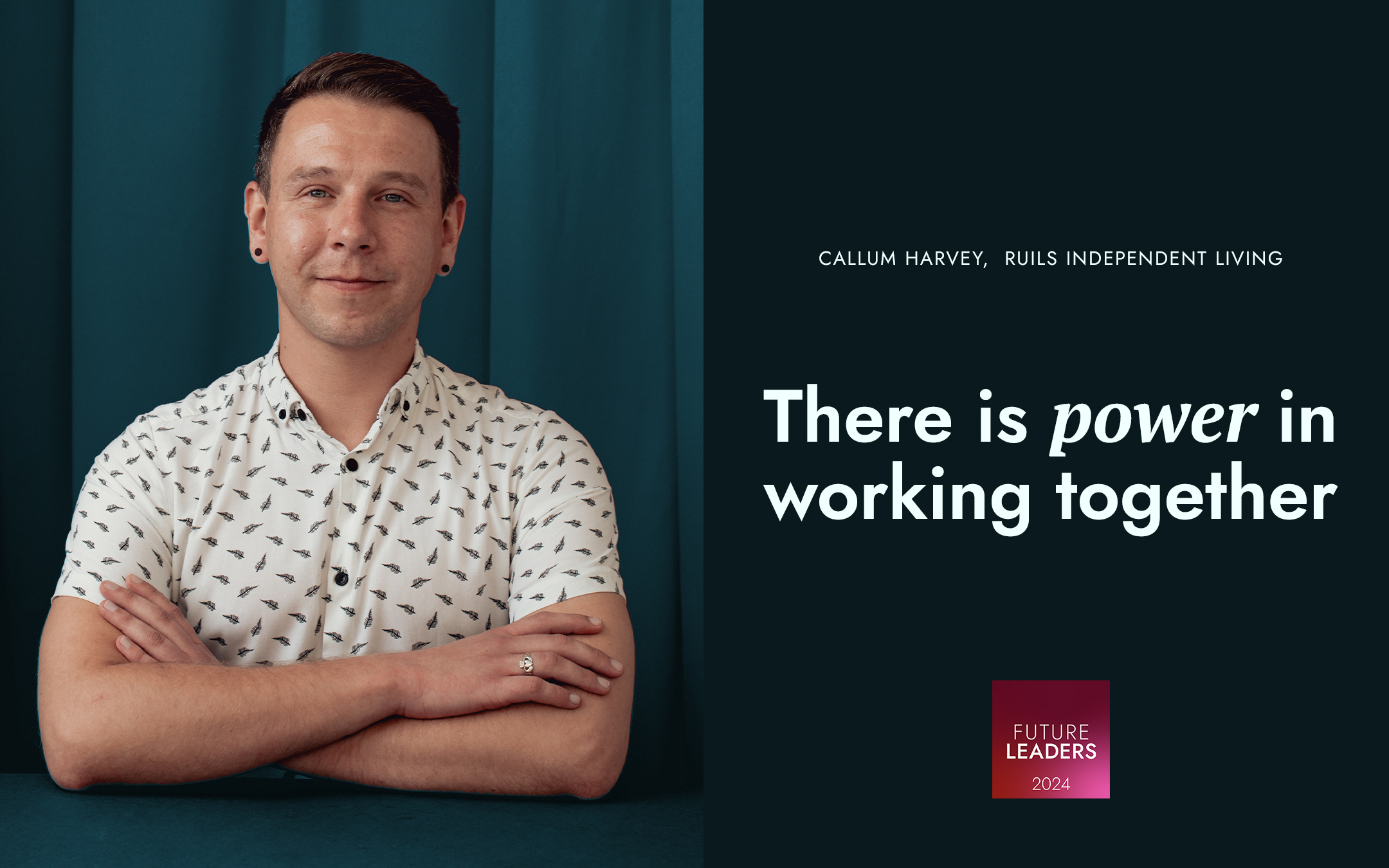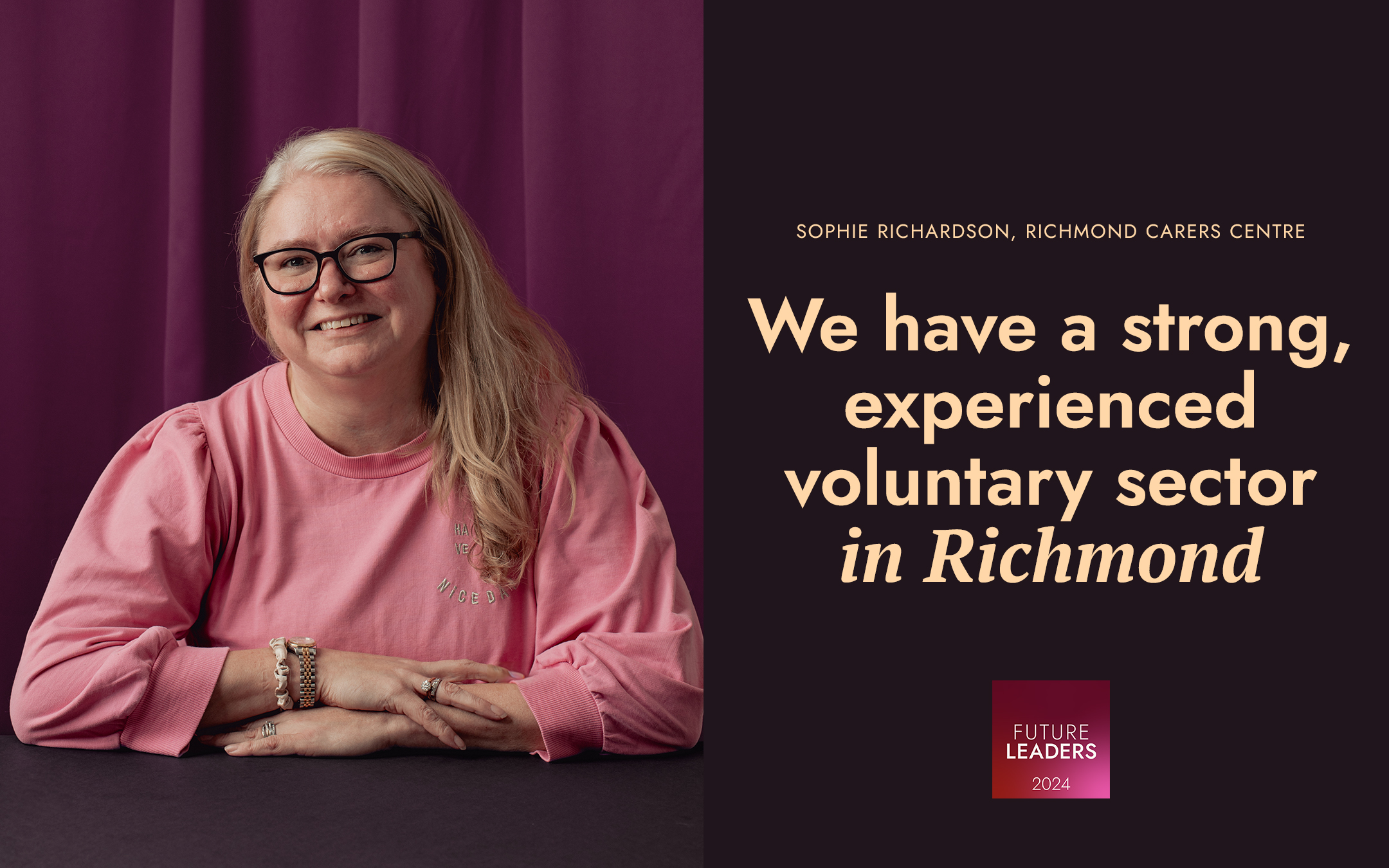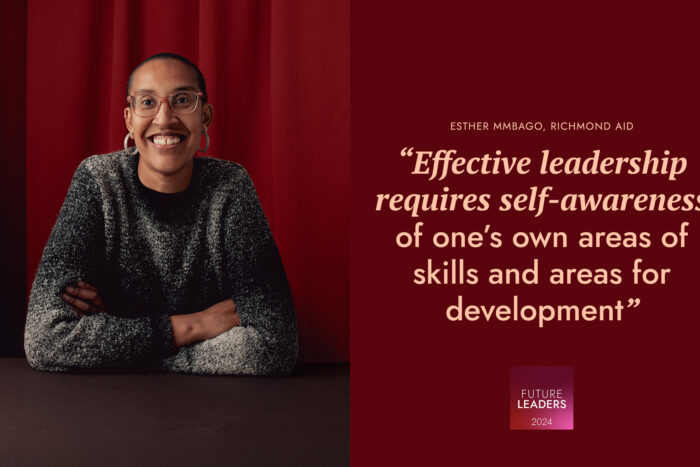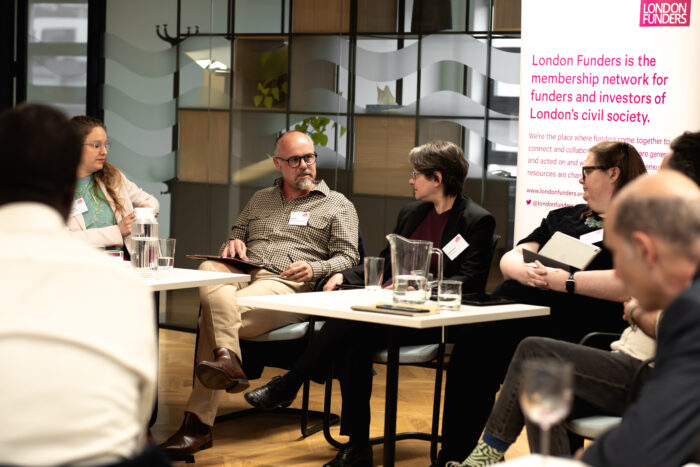Part Three of an exciting series exploring the key challenges shaping the work of the future for the voluntary and community sector.
Our Future Leaders share the value of training, creating professional networks and the impact of our Future Leaders programme.
Missed Part One or Part Two on Effective Leadership? Catch up now and explore more about the Future Leaders programme on our dedicated page.

Gurpreet Keila, Learn English at Home (LEAH).
How do you perceive the value of building a professional network, and what role do networks, coaching, and mentoring play in your personal and professional growth?
Building a network can be daunting—I still remember my sweaty palms at my first networking event! Initially, the idea of networking felt transactional, uncomfortable, and even insincere. But over time, I’ve learned that networking isn’t about asking for something or proving your worth. Instead, it’s about creating meaningful connections rooted in mutual respect and curiosity.
Now, I see networking as an opportunity to listen, share, and explore ideas together. The true value lies not just in outcomes like funding or partnerships—though they can happen—but in the inspiration, encouragement, and collective problem solving that come from genuine engagement.
The opportunity to be coached by Kita Ikoku (Clear Thinking Consultancy) as part of the Future Leaders programme has been a revelation. With the support of the wider Future Leaders group, these coaching sessions have created a safe space to reflect on the challenges we face and explore possibilities for growth and change.
What long-term impact do you believe the Future Leaders training will have on your leadership journey?
The Future Leaders programme is already transforming the way I approach my work and support my team. The techniques I’ve learned through the ACEVO training have given me greater confidence, particularly when presenting, whilst the coaching sessions have provided a supportive space for honest conversations and deeper self-reflection. These experiences have not only helped me address immediate challenges but also encouraged me to think more strategically in my role.
Perhaps most valuable of all, the programme has connected me with a group of talented and inspiring peers. I hope their insight, encouragement, and honest feedback will continue to challenge and strengthen me long after the programme ends.
Looking ahead, I’m excited to see how these shifts in mindset and practice will shape my leadership journey in the long term. I’ve set clear goals for myself for 2025, including pursuing a trustee role with a charity focused on health, education or nature.

Callum Harvey, RUILS Independent Living.
How do you perceive the value of building a professional network, and what role do networks, coaching, and mentoring play in your personal and professional growth?
Building a professional network within the voluntary sector is essential to supporting residents to improve their health and wellbeing. There is power in working together to address the wider determinants of health, which means we can better serve the needs of the community.
The voluntary sector is filled with people who are passionate and knowledgeable which helps supports us in gaining insight into best practice, staying informed of new trends and challenges our residents face.
Through my own experience of networking, this has been key to understand where our clients can access information, advice and guidance, alongside exploring the barriers they face with engaging in meaningful activities. Our services act as a bridge between primary care and the voluntary sector. It allows us to work in collaboration with others to meet our clients needs and achieve successful outcomes.
The combination of networks, coaching and mentoring has allowed me to reflect on situations and refine my thinking and explore different options. While networks have provided the external resources and collaborations we need to deliver personalised services, coaching and mentoring has provided support to deepen my knowledge and navigate challenges more effectively.
What long-term impact do you believe the Future Leaders training will have on your leadership journey?
One of the key benefits of this programme is connecting with other aspiring leaders, and I hope these relationships extend beyond the training itself. I feel it has been incredibly useful to have a strong support network of peers who understand the challenges of the sector and who have been able to offer their advice and insight.
Leading within the voluntary sector requires managing diverse teams and stakeholders with differing priorities. The programme has encouraged greater self-awareness and reflection of my leadership style, identifying areas for growth and improvement. These enhanced leadership skills will continue to support me navigating unpredictable landscapes, respond to challenges effectively and lead through periods of change.
Overall, the programme has enhanced my skill set, broadened my network and increased my confidence. I feel this places me in a great position for growth, alongside ensuring I can continue to contribute to the voluntary sector and have a positive impact.

Sophie Richardson, Richmond Carers Centre.
How do you perceive the value of building a professional network, and what role do networks, coaching, and mentoring play in your personal and professional growth?
There is immense value in building a professional network as working in the voluntary sector can be extremely busy and where resources are stretched.
Frequently we may feel we are working in a silo and focused on responding to need.
We have a strong experienced voluntary sector in Richmond and this enables us the time to spend to share that expertise, skills and knowledge that we have with each other. The coaching and mentoring gives us the opportunity and platform to look at solutions to challenges we face in roles where we straddle both operational and strategic leadership, which can be quite unique.
What long-term impact do you believe the Future Leaders training will have on your leadership journey?
The Future Leaders training has been a unique and valued opportunity to spend time on our own personal and professional development. It has allowed me time to review my own leadership skills and knowledge, including how others see me and look at how I can continue to improve and develop. It has challenged me, allowed me to reflect on my practice and to set new goals for my leadership role.
Stay tuned for more valuable insights from our Future Leaders!







